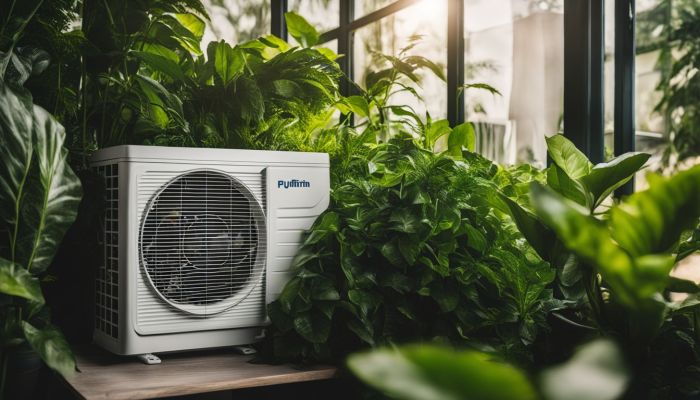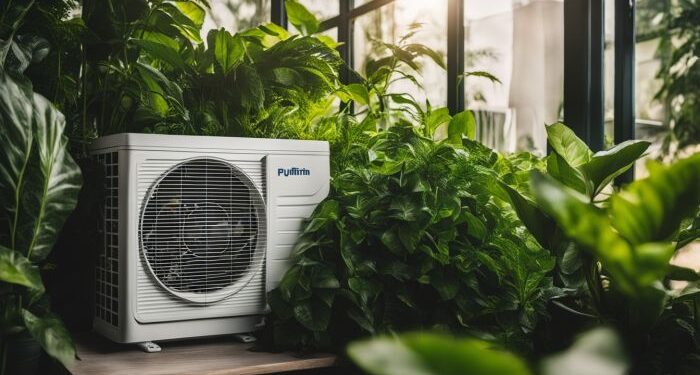Exploring the world of energy efficient air conditioners for hot climates, this article dives into the importance of efficient cooling solutions in hot weather conditions. From innovative technologies to environmental benefits, get ready to learn how to stay cool while saving energy.
Energy Efficiency in Air Conditioners

Energy efficiency in air conditioners is crucial, especially in hot climates, where these appliances are used extensively. Energy-efficient features not only help in reducing electricity consumption but also play a significant role in lowering utility bills.
Energy-Saving Technologies
Modern air conditioning units come equipped with various energy-saving technologies that contribute to their efficiency. Some common examples include:
- Variable-speed compressors that adjust the cooling output based on the required temperature, leading to reduced energy wastage.
- Programmable thermostats that allow users to set specific temperatures for different times of the day, optimizing energy usage.
- High-efficiency filters that improve airflow and reduce the workload on the system, resulting in lower energy consumption.
Impact on Electricity Consumption and Utility Bills
Energy-efficient air conditioners have a direct impact on electricity consumption and utility bills. By using less energy to operate, these units help in lowering overall energy usage, leading to reduced electricity bills for homeowners and businesses. Additionally, the efficiency of these air conditioners also contributes to environmental conservation by reducing carbon emissions associated with energy production.
Cooling Capacity and Performance
When it comes to air conditioners in hot climates, the ideal cooling capacity is typically measured in British Thermal Units (BTUs). The required BTU level depends on factors such as room size, insulation, and local climate conditions. Generally, for hot climates, air conditioners with higher cooling capacities, such as 18,000 BTUs or more, are recommended to effectively cool larger spaces and combat the intense heat.
Comparing Energy-Efficient and Traditional Models
In terms of performance, energy-efficient air conditioners have proven to be more effective in providing consistent cooling compared to traditional models. Energy-efficient units are designed with advanced technology that allows for precise temperature control and better humidity regulation. This results in a more comfortable indoor environment, even during extreme heat waves, without experiencing temperature fluctuations or hot spots.
Enhanced Cooling Performance with Variable-Speed Compressors
Energy-efficient air conditioners often feature variable-speed compressors, which play a crucial role in enhancing cooling performance. Unlike traditional air conditioners that operate at a fixed speed, variable-speed compressors can adjust their speed based on the cooling needs of the space.
This allows for more efficient cooling, reduced energy consumption, and improved overall comfort. By running at lower speeds when the temperature is close to the desired set point, variable-speed compressors help maintain a consistent temperature without frequent cycling on and off, resulting in quieter operation and increased energy savings.
Environmental Impact
Energy-efficient air conditioners play a crucial role in reducing carbon emissions and mitigating the effects of climate change. By consuming less electricity to operate, these units help lower the overall demand for power generated from fossil fuels, which are major contributors to greenhouse gas emissions
Use of Eco-Friendly Refrigerants
Energy-efficient air conditioners often utilize eco-friendly refrigerants, such as R-410A or R-32, which have a lower impact on the environment compared to older refrigerants like R-22. These newer refrigerants are designed to be more energy-efficient and have a lower global warming potential, reducing the carbon footprint of cooling systems.
Long-Term Sustainability Advantages
Investing in energy-efficient cooling solutions not only helps reduce immediate energy costs but also leads to long-term sustainability benefits. By choosing models with high energy efficiency ratings, homeowners and businesses can lower their overall energy consumption, decrease greenhouse gas emissions, and contribute to a healthier environment for future generations.
Maintenance and Care
Regular maintenance is key to maximizing the energy efficiency of air conditioners in hot climates. By following simple practices such as cleaning, filter replacement, and professional servicing, you can ensure optimal performance and extend the lifespan of your energy-efficient air conditioner.
Regular Cleaning
Regularly clean the air conditioner's coils, fins, and filters to ensure proper airflow and efficiency. Dust and debris can accumulate over time, hindering the unit's performance. Use a soft brush or vacuum to clean the coils and fins, and replace or clean the filters as recommended by the manufacturer.
Filter Replacement
Filters play a crucial role in maintaining air quality and energy efficiency. Clogged filters restrict airflow, making the unit work harder and consume more energy. Replace filters regularly to ensure proper airflow and reduce strain on the system.
Professional Servicing
Schedule regular professional servicing to keep your air conditioner running smoothly. A professional technician can inspect the unit, clean internal components, check refrigerant levels, and address any issues that may affect efficiency. Professional servicing can help identify potential problems early on and prevent costly repairs down the line.
Optimal Performance and Lifespan
By following these maintenance practices, you can ensure that your energy-efficient air conditioner operates at peak performance levels. Proper maintenance not only maximizes energy efficiency but also extends the lifespan of the unit, ultimately saving you money in the long run.
Concluding Remarks
In conclusion, energy efficient air conditioners offer a practical and eco-friendly way to beat the heat in hot climates. By investing in these cooling solutions, not only can you reduce your carbon footprint but also enjoy long-term savings on your utility bills.
Stay cool, stay efficient!
Expert Answers
How do energy-efficient air conditioners help reduce electricity consumption?
Energy-efficient models use advanced technologies like variable-speed compressors and eco-friendly refrigerants, resulting in lower energy usage and reduced utility bills.
What maintenance practices can improve the energy efficiency of air conditioners?
Regular cleaning, filter replacement, and professional servicing are key maintenance practices that ensure optimal performance and energy efficiency.
Do energy-efficient air conditioners really make a significant impact on reducing carbon emissions?
Yes, energy-efficient air conditioners contribute to reducing carbon emissions by using less energy and environmentally friendly refrigerants, thus helping in the fight against climate change.















